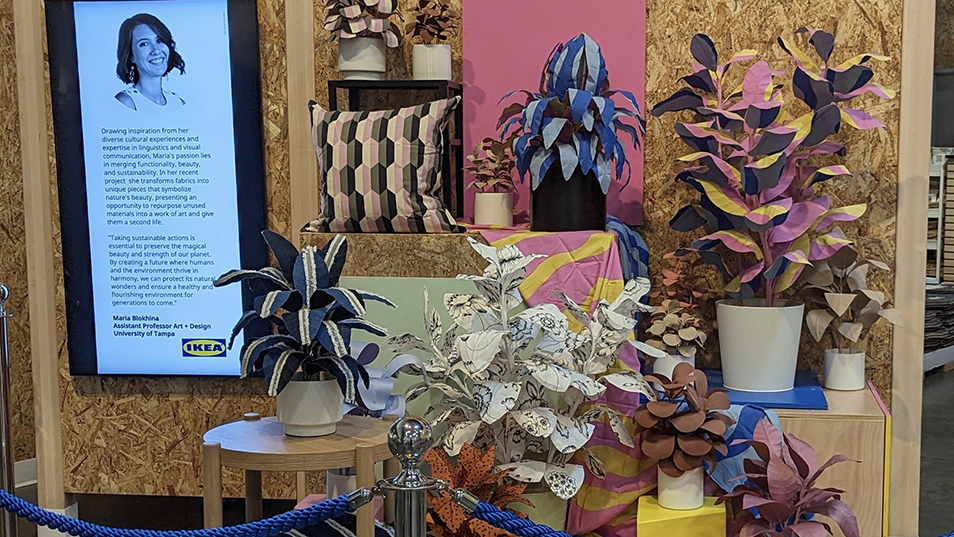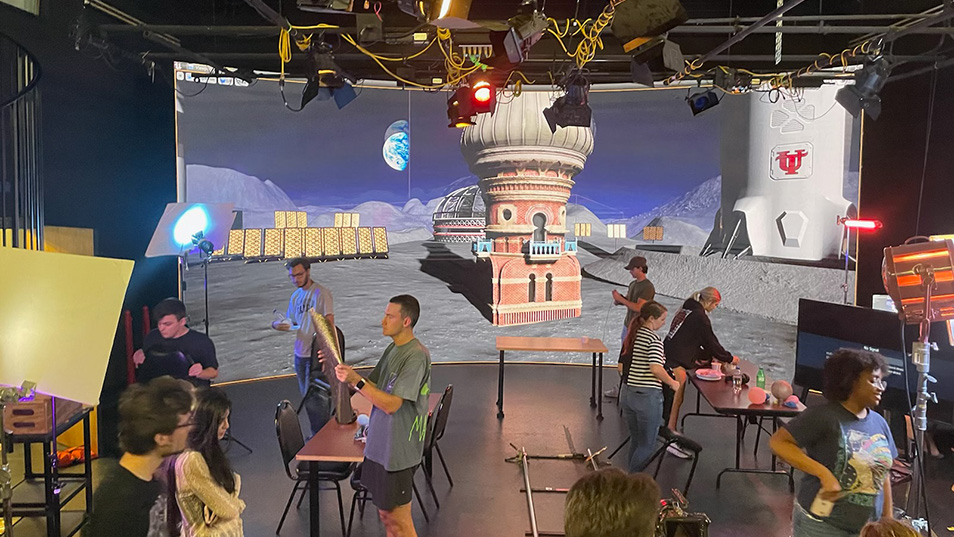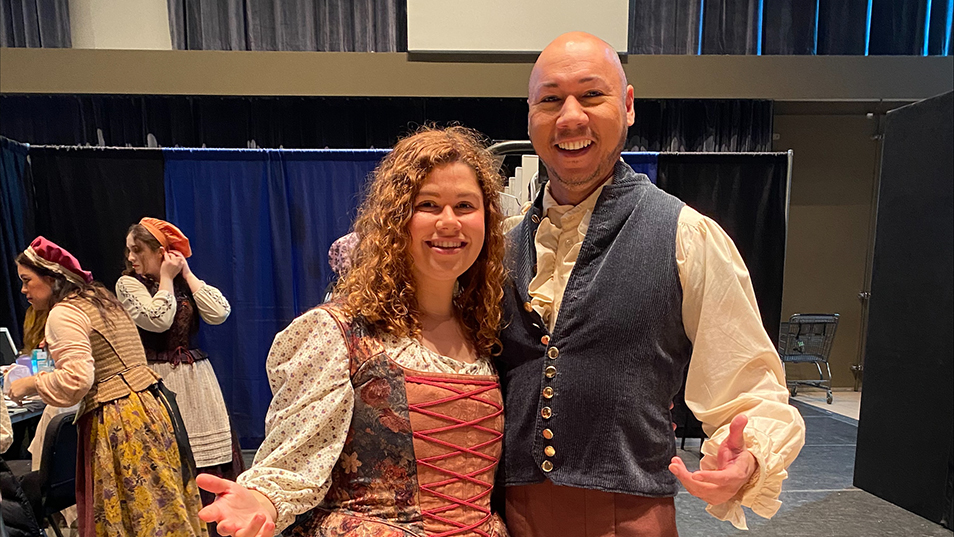Published: January 25, 2016
A Woman, a Muslim and an Arab: Promising Filmmaker Expresses Her Identity Through Art
»Video
Across Jude Chehab’s resume are the words director, cinematographer, writer. As a little girl growing up first in New York and Florida, then in Lebanon, her mother gave her three other words to weigh carefully, three words she would embrace and use to become the three on her resume today: woman, Muslim, Arab.
“This immediate awareness of responsibility ignited a flame within me instantly,” Chehab ’16 wrote on her application for an upcoming film workshop. “It is a very rare feeling in life to feel ignited, to feel as though the entire world around you has just appeared and with every flame within you, you plan to face it.”
The workshop — Autores Seleccionados, presented by Black Factory Cinema — will put Chehab among 34 other emerging, international filmmakers with a clear vision of where they want to go in film.
From Jan. 26–Feb. 5 in Havana, Chehab will develop a project under the guidance and supervision of Abbas Kiarostami, an Iranian filmmaker who has been the central film influence in changing film for the better, said Aaron Walker, assistant professor of communication.
“Abbas is one of the top tier filmmakers in the world. I can’t underestimate how important he is to film,” said Walker. “Jude will be listening to him talk about his own films and his process. It’s going to be a revelatory experience.”
Chehab, an honors student majoring in film and media arts, has already made short films and documentaries that have grabbed attention — Best Documentary at the Dubrovnik Film Festival, Best Mediterranean Film at Teen International Short Film Festival and Best Picture at UT’s Campus MovieFest. She has interned with a film company in Bangladesh and MBC Network in Beirut, worked as a camera operator for the St. Petersburg Film Commission and led documentary filmmaking workshops in the United Kingdom, Lebanon and Croatia.
“Jude is opening up our students’ eyes to global cinema, and she’s an example of someone naturally going in that direction,” Walker said. “She has a tremendous amount of promise.”
Professor Dana Plays called Chehab’s acceptance to the workshop “a real coup.”
“I’m sure the experience will give her the tools to advance her future work within the limelight of international film directors,” said Plays, who taught Chehab in her course on women directors.
Growing up Chehab didn’t see herself much — her life, her culture, her reality — in the scenes played out on television and movie screens. When she discovered Syrian-born, UCLA-educated filmmaker Moustapha Akkad’s films, “It gave me a feeling like no other. I related to the films.” When she later discovered Kiarostami, she was immediately awed at his ability to depict the human condition.
Chehab has a passion to educate people about her religion and promote understanding. Giving the scenario of a father who has fallen on the floor who you want to help up and brush off, Chehab said Islam needs the same care now. “I feel a responsibility to change people’s attitude,” said Chehab, who is president of UT’s Muslim Student Association.
When her mother covered her with those three words of descriptive responsibility, Chehab’s immediate response was of anger. And then she reconsidered. Her mother, who Chehab described as outspoken, always tried to show her children the beauty of Islam.
“As a woman, a Muslim and an Arab there is a lot stacked up against me, but instead of getting angry I can express myself through art and film, which is good and healthy,” said Chehab, whose film style lies at the intersection of documentary and narrative.
“I have never felt in the position of prayer more than when I find myself creating. The mystic that lies beneath my hollow bones lives through art,” she wrote in her workshop application. “In order to act on this desire for film, one must change the discourse of films, create one’s own dictionary within a film and through real cinema, real stories, real people, depict what cinema really is: an art form.”
Walker calls Chehab’s style of filmmaking patient and not flashy.
“She uses true reality and subtly crafts the story around it,” Walker said. “She is very interested in reality and what that means for the film and the viewer. She is extremely driven and deliberate on set but also very collaborative. She has tremendous promise.”
Susanna Wallin, a visiting assistant professor, called Chehab’s style creative and unpredictable in her approach.
“It seemed she always asked really interesting questions about how she could push the medium to tell the stories she was interested in telling, and so inherent in her films was always this playfulness with form but serious investigation into her subject matter,” Wallin said. “I think an experience like this one is a testament to the depth of her curiosity and will continue to feed it in the future.”
When she graduates in May, Chehab isn’t’ sure if she’ll return to Lebanon or travel and learn from other filmmakers in the U.S. or elsewhere. She is hoping Kiarostami points her in the right direction. Regardless of where she goes though, she is going to aim for her ultimate truth: to show the reality of humanity in her films, the honesty of which, she says, is the essence of cinema.
Have a story idea? Contact Jamie Pilarczyk, Web Writer
Sign up for UT Web Alerts



